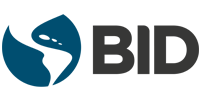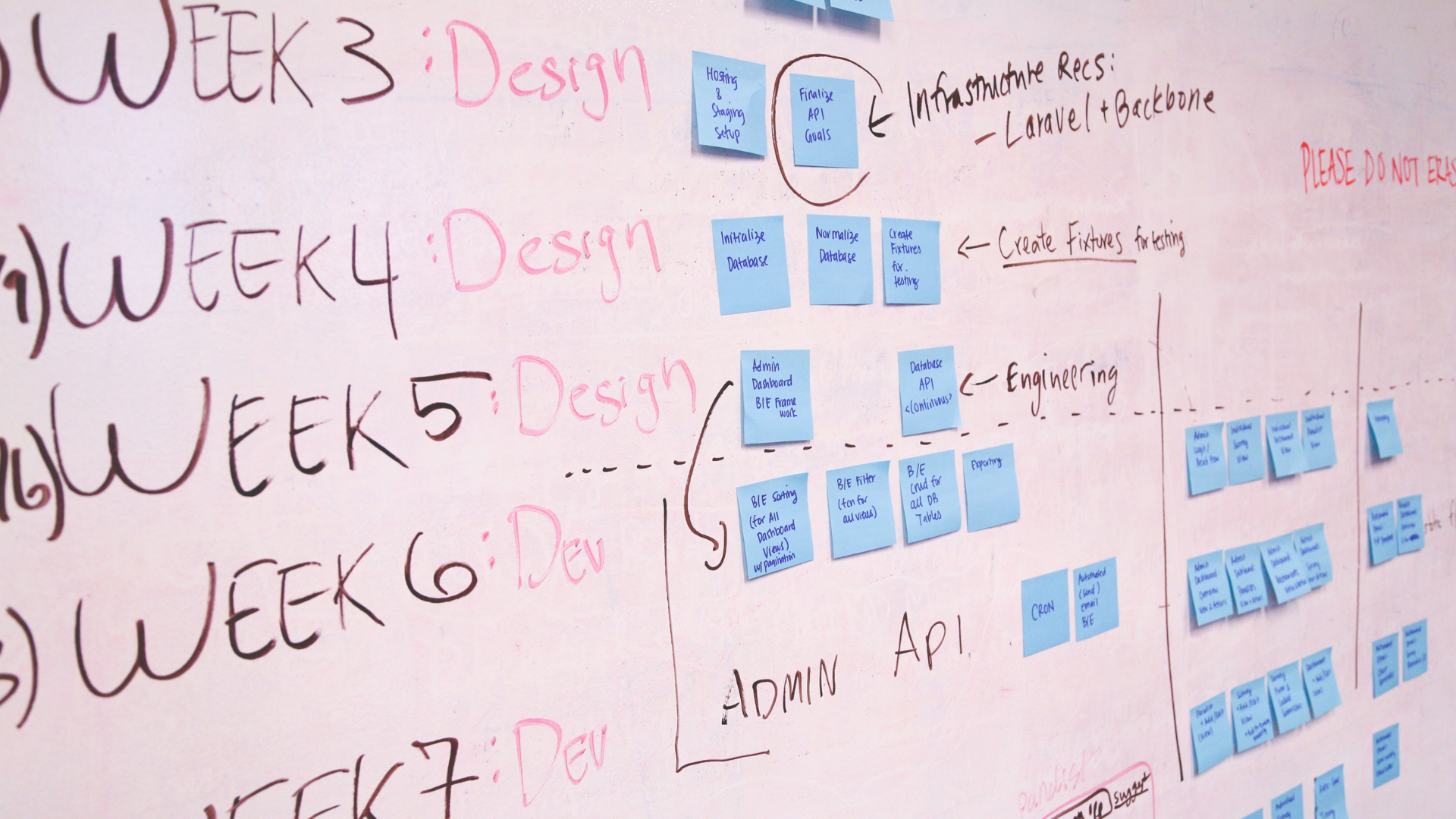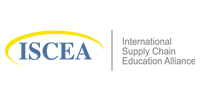Career Pathways
Project management
A career in project management offers dynamic growth opportunities and requires strong problem-solving, communication, and adaptability skills. Project managers lead and make critical decisions, ensuring success in diverse sectors like construction, engineering, healthcare, and technology. Building a business and technical skills foundation is crucial for a thriving project management career across industries.

In-demand skill set
The global economy needs 25 million new project professionals by 2030.
Multi-industry growth
Across all industries, developments in tech, healthcare, finance and other industries will drive project management growth.
Desirable payscale
The national average annual wage of a project manager specialist is $98,420.

Daina Argueta, Technical Project Manager
Listen as Daina Argueta, a Technical Project Manager at SAS, shares their experience working in the field of project management. Their insights shed light on the essential skills required to excel in the diverse landscape of daily tasks.
I think that the most valuable skill set for a Technical Project manager is curiosity. I’ve noticed that in the positions that I’ve been in since I’ve transitioned it really doesn’t matter how much you know out the gate, it’s whether or not you’re willing to continually learn. And I think to be patient and curious is really what you need as a technical project manager. But another viable set would probably be patience. We’re not always going to have the answers and so sometimes, I think it’s really valuable when you have individuals who can take a breather, say they’re not sure but they will find out. I think for me those are skill sets that are just invaluable along with obviously time management skills and being able to jungle multiple fires at once. Someone at my position said that the best example they could have for a project manager was that trying to drink out of a fire hydrant and every client is a new fire hydrant. And I really loved that because it’s just the perfect example of what you’re balancing on a day-to-day.
Discover your career opportunities
Acquiring basic project management skills opens up a wide range of career opportunities around the world.
| Entry level | Mid level | Senior level | Entrepreneurial |
|
| Assistant Project Manager | ||||
| Associate Project Manager | ||||
| Chief Operating Officer | ||||
| Construction Project Manager | ||||
| Director of Project Management | ||||
| Healthcare Project Manager | ||||
| Junior Project Manager | ||||
| Marketing Project Manager | ||||
| Portfolio Manager | ||||
| Project Coordinator | ||||
| Project Manager | ||||
| Resource Manager | ||||
| Senior Project Manager | ||||
| Scrum Master | ||||
| Technology Project Manager | ||||
| Vice President of Operations |
Learn about topics in project management
Register for a course on edX to learn about a variety of topics within the project management industry.
How can I acquire project management skills and turn them into a career?
If you’re interested in pursuing a career in project management, we recommend taking these steps:
Thorough research plays a pivotal role in every profession, and the field of project management is no different. Utilize the wealth of information at your disposal, whether that involves conducting online searches for relevant job titles, tuning in to industry-specific podcasts, or establishing connections with professionals in the domains or roles that captivate your interest.
A critical component of the research phase is networking, yet it is often underestimated in its impact on your career journey. To gain a clearer understanding of your career objectives and aspirations, invest time in conversing with industry professionals to learn about their daily experiences. Insights gathered from these networking interactions will help you determine if a career in project management aligns with your interests, desires, and requirements.
As you forge connections through networking, remember that the essence of effective networking lies in fostering long-lasting relationships. Continue to nurture your professional connections. When you’re prepared to explore career opportunities, you’ll already have a network of relevant experts to seek advice from or request referrals, giving you a substantial advantage.
Check out our Networking guide, Informational interviewing article, and Outreach templates for help getting started.
In addition to gaining insights into the professional journeys of others, it’s crucial to maintain a clear vision of your own career objectives and ambitions. Project management offers a wide range of paths towards achieving your ideal career, each with unique opportunities. As you engage with industry professionals, remember to periodically reflect on your aspirations because the possibilities are limitless.
You need a whole range of skills to be a successful project manager. They may be skills you already use in your day-to-day life, as well as job-specific abilities developed through education and training. Project management skills are also highly transferable, which makes them valuable across many industries.
Regardless of the industry, project managers must have a solid grasp of business concepts like risk analysis and supply chain coordination. They also need to possess a variety of soft skills, including the ability to think strategically under stressful situations while deftly communicating with team members, company directors, and stakeholders.
Nevertheless, the most prized and in-demand skills for project managers include:
Communication — Because project managers often act as intermediaries between company executives, stakeholders, team members, and the public, they must be able to relay information thoroughly and strategically. Effective communication via multiple channels ensures that the team fully understands and continues to make progress toward project goals.
Leadership — As leaders, project managers work toward what is best for individual employees and the company at large. Effective leadership consists of interpersonal respect, honesty, and the ability to keep promises. Project managers also need to resolve conflict in a fair manner, whether it arises between team members or between the organization and its stakeholders.
Resource management — All projects contain limitations in terms of time and funding. It is the project manager’s job to allocate resources efficiently through careful pre-planning and scheduling. Through these processes, project managers create transparency and build a safety net when unforeseen problems arise.
Critical thinking — Project managers are tasked with resolving complex problems by analyzing relevant data, consulting experts, and implementing creative solutions. Critical thinking is integral to successfully managing these tasks. Critical thinking also plays a key role in pre-planning, which enables managers to pick the best strategies to maximize return on investment.
Flexibility — Projects can behave like living things, constantly evolving as they move toward completion. Project managers need to quickly adapt to any changes, guide their team, and avoid temporary setbacks or complete failures. Flexibility also allows project managers to multitask without succumbing to stress and burnout.
With a strong foundation and the essential skills listed above, you will be able to explore a multitude of options in the field of project management.
You don’t have to have a leadership role to develop project management skills. Think about ways that you stand out in your current role or at school. Consider processes that you lead, the meticulous documentation you maintain, the ways you proactively communicate with your managers or teammates, or problems you have successfully helped solve. Also, identify the areas of opportunities and seek ways to improve. Ask for feedback from your managers or people you trust on ways you can improve your project management skills.
Tramaine Isaac, career expert at edX
Continuing education plays a crucial role in long-term career success for project management. It is important that you find ways to keep learning and growing in your field. The good news is that you don’t have to look very far to uncover an enriching learning opportunity. Here are a few options to consider:
Self-education — If you want to learn asynchronously, informally, or casually, self-education is a great place to start. Many approaches to this continuing education option supports a variety of career goals, budgets, learning styles, and time commitments. You can read relevant books, articles, and research papers to expand your project management knowledge and stay abreast of news and trends. You can also watch relevant videos, listen to relevant podcasts, and engage with other forms of multimedia to help increase your project management knowledge.
Online Courses — If you prefer a more structured or socialized learning experience, online courses might be a good option. edX.org offers several instructor-led and self-paced project management courses that may be of interest.
Professional certifications — While not mandatory, certifications can significantly bolster your skill set and elevate your competitiveness as a well-qualified candidate within your industry. You may find it worthwhile to explore the various certificate programs related to project management available on edX.org.
Boot camps — Experienced curriculum teams design these innovative programs to help you achieve your career goals in a fraction of the time it takes to complete a traditional degree. With many boot camps lasting just 3–12 months, you’ll be amazed at how quickly you can gain the knowledge and expertise you need to launch your dream career.
Project management degree — Pursuing a degree in project management is an excellent choice if you want to gain a comprehensive understanding of the rich history, intricate theories, concepts, and cutting-edge innovations that have contributed to shaping the world of project management.
Developing a professional portfolio that spotlights your unique project management ability, including your management of a diverse project portfolio, your strategic decision-making prowess, your adept handling of risks, and your problem-solving abilities to advance business objectives presents an outstanding opportunity to set yourself apart. The creation of a visual portfolio also serves as valuable preparation for interviews, acting as a prompt for recalling the triumphs and trials you’ve encountered. Beyond simply guiding the direction of your narratives, the portfolio ignites deeper discussions anchored in your achievements.
Throughout the interview process, hiring managers evaluate your competencies, capabilities, and adaptability. Your portfolio serves as your advocate even before the interview begins, proving that you are the most qualified project manager for the position.
As you construct your portfolio, it’s vital to prioritize your audience’s needs while safeguarding sensitive information. Here are some pointers for constructing an outstanding portfolio:
Tailor content for your audience — Customize your portfolio to cater to the specific needs and interests of your intended audience.
Highlight key achievements — Showcase your most noteworthy accomplishments and how they contributed to the success of projects and business objectives.
Emphasize problem-solving skills — Illustrate instances where your problem-solving abilities played a pivotal role in overcoming challenges.
Address risk management — Demonstrate your expertise in managing risks and ensuring project stability.
Maintain confidentiality — Be cautious not to divulge sensitive or confidential information in your portfolio.
Visual appeal — Create a visually engaging portfolio that captivates the viewer and effectively communicates your achievements.
Preparation — Utilize your portfolio to prepare for interviews, helping you recount your experiences and articulate your value as a project manager.
By following these guidelines, you can develop a compelling portfolio that effectively communicates your prowess as a project manager while respecting confidentiality and catering to your audience’s expectations.
Once you’ve secured your initial foothold in project management, don’t forget to celebrate your achievements. The career journey is filled with its fair share of highs and lows, and we firmly believe that every triumph merits recognition.
That being said, this is not the culmination of your journey; it’s just the beginning. Embrace the process, be patient with yourself, and realize that career trajectories are seldom straightforward.
Here are some of the ways that you could continue growing within the field of project management:
Continuous learning — Make it a habit to explore our extensive course catalog on edX.org for ongoing educational opportunities. Now that you’ve taken your first steps in your career, there’s always value in refreshing your skills, deepening your industry knowledge, or delving into related subjects that can enrich your work or align with your interests.
Continuous learning is the key to a healthy career! Surrounding yourself with people who share this value is also important. Align yourself with people who are positive and forward-thinking. Engage in conversation about your career field or opportunities for growth. Doing this will keep you motivated and encourage healthy competition as you and your like-minded peers celebrate one another’s wins and push each other to be your best.
Tramaine Isaac, career expert at edX
Advancement — Advancing in your project management career can vary significantly depending on the industry, role, function, and the type of projects you own. You may find yourself progressing to the role of a senior project manager, or you might even consider venturing into entrepreneurship by establishing your own project consulting company.
Career shifts — Periodically assess your contentment with your daily responsibilities. If you discover that your current role doesn’t satisfy you, take the time to analyze what aspects you enjoy and what you find less appealing. Keep an eye out for growth opportunities within your organization and be open to pursuing career shifts that leverage your background, skill set, and passions.
Remember, your career is a dynamic and evolving journey, and embracing change and continuous learning will be instrumental in your long-term success in project management.
What are my next steps?
Start learning now
Register for a course on edX to learn about a variety of topics within the field of project management.
Watch a session
Watch a relevant session on our Events Page to learn more about the industry and other professional’s experiences within it.
Interview with a tech recruiter: Setting yourself up for success in the job search
Looking for a new job in the tech industry can be challenging, but staying positive and focusing on your goals is essential. Maintaining a proactive attitude and taking steps to improve your skills and network will help you confidently navigate the job market. Join us for an insightful interview with Brent Hamilton, Lead IT Recruiter […]

Voices of women in tech: Overcoming obstacles and building careers
Every day, women worldwide are breaking barriers and achieving great things. It is essential to acknowledge and honor their achievements and to continue working towards a more equitable society where everyone has an equal opportunity to succeed. Engage with this exciting webinar featuring a panel discussion with Software Engineers Vanessa Esterbrook and Blanca Bermeo, who […]

Crafting your story as a data analytics professional
Immerse yourself in our discussion with two successful data professionals as they share their career journeys and their best career tips. Learn how to create a winning portfolio and present yourself in interviews to stand out from the competition. Get firsthand insights and practical advice from our alums on crafting your story and positioning yourself […]















